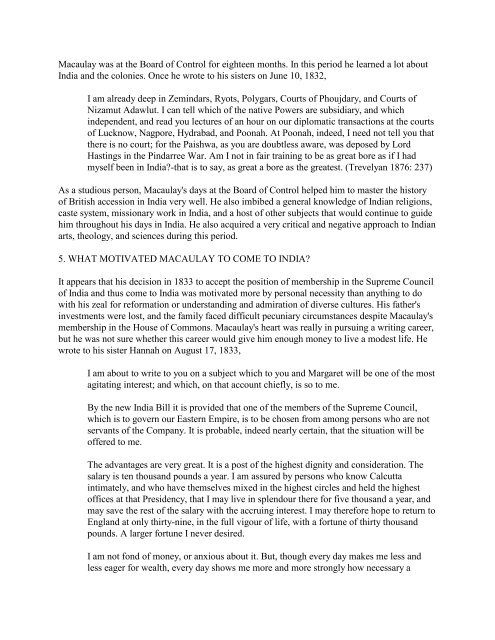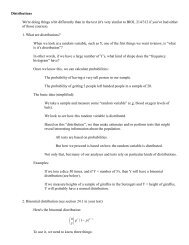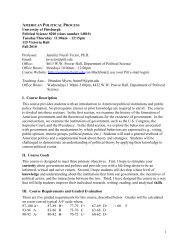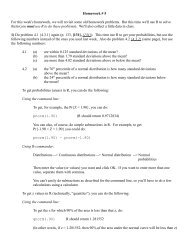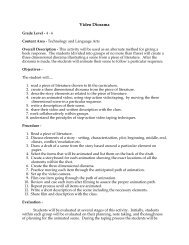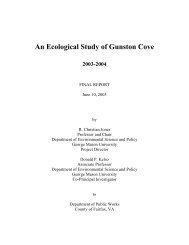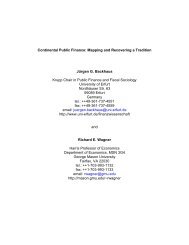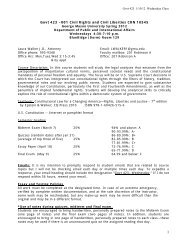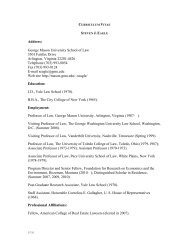M.S. Thirumalai, Ph.D. “Lord Macaulay: The Man Who Started It All ...
M.S. Thirumalai, Ph.D. “Lord Macaulay: The Man Who Started It All ...
M.S. Thirumalai, Ph.D. “Lord Macaulay: The Man Who Started It All ...
Create successful ePaper yourself
Turn your PDF publications into a flip-book with our unique Google optimized e-Paper software.
<strong>Macaulay</strong> was at the Board of Control for eighteen months. In this period he learned a lot about<br />
India and the colonies. Once he wrote to his sisters on June 10, 1832,<br />
I am already deep in Zemindars, Ryots, Polygars, Courts of <strong>Ph</strong>oujdary, and Courts of<br />
Nizamut Adawlut. I can tell which of the native Powers are subsidiary, and which<br />
independent, and read you lectures of an hour on our diplomatic transactions at the courts<br />
of Lucknow, Nagpore, Hydrabad, and Poonah. At Poonah, indeed, I need not tell you that<br />
there is no court; for the Paishwa, as you are doubtless aware, was deposed by Lord<br />
Hastings in the Pindarree War. Am I not in fair training to be as great bore as if I had<br />
myself been in India?-that is to say, as great a bore as the greatest. (Trevelyan 1876: 237)<br />
As a studious person, <strong>Macaulay</strong>'s days at the Board of Control helped him to master the history<br />
of British accession in India very well. He also imbibed a general knowledge of Indian religions,<br />
caste system, missionary work in India, and a host of other subjects that would continue to guide<br />
him throughout his days in India. He also acquired a very critical and negative approach to Indian<br />
arts, theology, and sciences during this period.<br />
5. WHAT MOTIVATED MACAULAY TO COME TO INDIA?<br />
<strong>It</strong> appears that his decision in 1833 to accept the position of membership in the Supreme Council<br />
of India and thus come to India was motivated more by personal necessity than anything to do<br />
with his zeal for reformation or understanding and admiration of diverse cultures. His father's<br />
investments were lost, and the family faced difficult pecuniary circumstances despite <strong>Macaulay</strong>'s<br />
membership in the House of Commons. <strong>Macaulay</strong>'s heart was really in pursuing a writing career,<br />
but he was not sure whether this career would give him enough money to live a modest life. He<br />
wrote to his sister Hannah on August 17, 1833,<br />
I am about to write to you on a subject which to you and Margaret will be one of the most<br />
agitating interest; and which, on that account chiefly, is so to me.<br />
By the new India Bill it is provided that one of the members of the Supreme Council,<br />
which is to govern our Eastern Empire, is to be chosen from among persons who are not<br />
servants of the Company. <strong>It</strong> is probable, indeed nearly certain, that the situation will be<br />
offered to me.<br />
<strong>The</strong> advantages are very great. <strong>It</strong> is a post of the highest dignity and consideration. <strong>The</strong><br />
salary is ten thousand pounds a year. I am assured by persons who know Calcutta<br />
intimately, and who have themselves mixed in the highest circles and held the highest<br />
offices at that Presidency, that I may live in splendour there for five thousand a year, and<br />
may save the rest of the salary with the accruing interest. I may therefore hope to return to<br />
England at only thirty-nine, in the full vigour of life, with a fortune of thirty thousand<br />
pounds. A larger fortune I never desired.<br />
I am not fond of money, or anxious about it. But, though every day makes me less and<br />
less eager for wealth, every day shows me more and more strongly how necessary a


